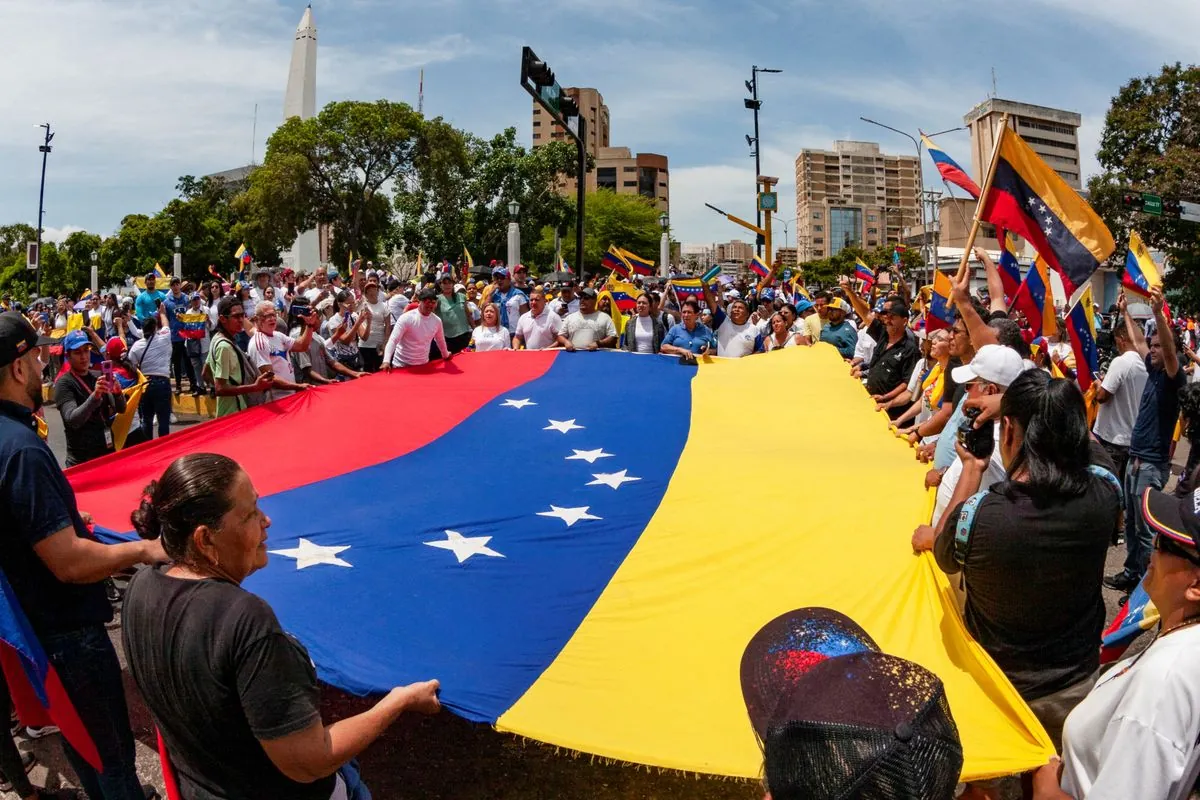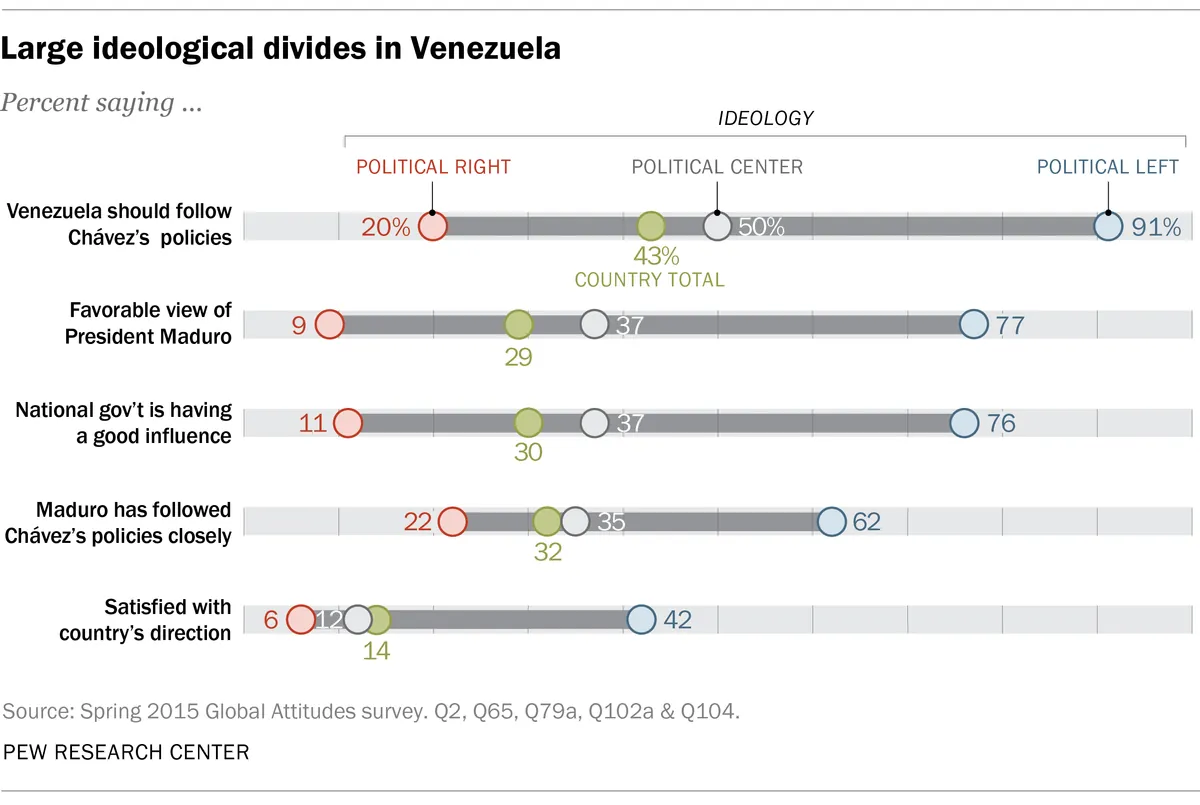Venezuelan Opposition Rallies Nationwide, Challenging Presidential Election Results
Venezuela faces political turmoil as opposition contests recent election results. Protests erupt across the country, while international community offers varied responses to the disputed vote.

Twenty days after Venezuela's presidential election, the country finds itself embroiled in a political crisis. The opposition, led by Maria Corina Machado, is contesting the official results that declared incumbent Nicolas Maduro the winner of his third term.
According to the electoral authority, Maduro secured just under 52% of the votes in the July 28 election. However, the opposition claims their candidate, Edmundo Gonzalez, received 67% support based on 83% of voting machine tallies they've published online.

This dispute has sparked nationwide protests, with supporters of the opposition gathering in various cities to demand recognition of their claimed victory. In Caracas, over 5,000 people assembled in the eastern part of the city by midday.
"I came today to support Maria Corina and Edmundo to be able to have a future in this country and have a family. We know that with this government there are no possibilities for growth, I've even seen myself trying to leave the country."
The ongoing crisis has led to a government crackdown on protests, resulting in at least 2,400 arrests and 23 deaths in clashes related to the demonstrations. This unrest occurs against the backdrop of Venezuela's severe economic challenges, including hyperinflation that has persisted since 2016 and an economy that has shrunk by approximately 75% since 2014.
International reactions to the disputed election have been mixed. Many Western countries have called for full publication of results, while Russia and China have congratulated Maduro on his victory. The United States, which tightened oil sanctions on Venezuela in April, has shown little indication of swift, strong action in response to allegations of voting fraud.
The opposition's options appear to be narrowing as international attention shifts elsewhere. However, Latin American leaders plan to discuss the crisis during a gathering in the Dominican Republic this weekend.
Venezuela's current situation is part of a longer-term trend of political polarization and economic decline. Once the richest country in South America, Venezuela now faces severe shortages of food and medicine, frequent power outages, and a collapsed healthcare system. These factors have contributed to the exodus of over 7 million Venezuelans since 2015, highlighting the urgent need for a resolution to the ongoing political and economic crisis.


































